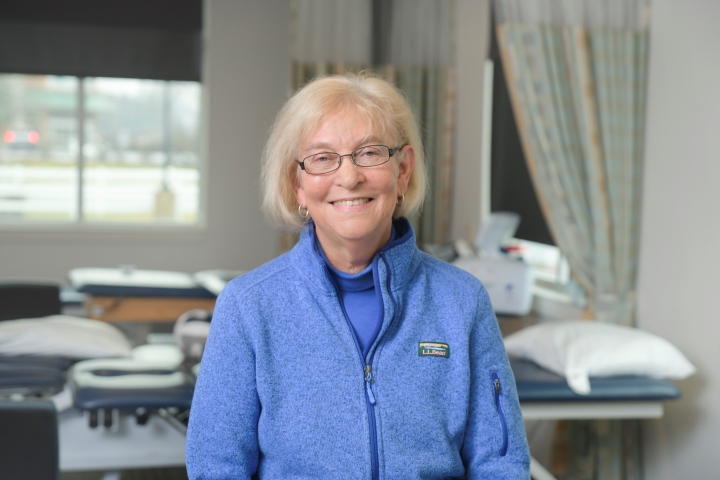News

St. Luke’s orthopedic spine surgeon Colin Whitaker, MD, shares this timely advice for young women aimed at keeping them out of his operating room when they’re older. Take care of your bones, he says, so you don’t develop osteoporosis, or osteopenia, which can lead to bone fractures that may require surgical repair.
Approximately 10 million Americans, mostly women, develop osteoporosis, a weakening of the inner bone, and another 44 million have low bone density, or osteopenia, putting them, too, at increased risk for broken bones.
“These common conditions often come with aging when a woman’s estrogen protection and calcium volume decrease significantly, which comes with menopause but can start much sooner,” explains Dr. Whitaker, who joined St. Luke’s Orthopedic Care this year after completing an orthopedic fellowship at the University of Pennsylvania. Men can develop them, but much less frequently.
In younger women, as early as their teens, osteoporosis can be triggered by cigarette smoking, heavy alcohol consumption and eating disorders like anorexia, he says. Other malabsorptive conditions also can lead to brittle bones.
He often treats elderly patients who suffer “fragility compression fractures,” resulting from a minor fall or other trauma, which result in a broken hip or wrist, or fracture of the spine.
But not all are post-menopausal, Dr. Whitaker cautions, who also treats women in their 20s and 30s.
“Young girls are setting themselves up for osteoporosis or osteopenia, which can occur even before they reach menopause, if they practice behaviors, like anorexia, that can harm their overall health,” he says.
“But the good news for young females is these frail bone disorders can be mitigated if those unhealthy habits are stopped in time.”
Dr. Whitaker treats most osteoporosis-related bone fractures without surgery, using a brace or cast to stabilize the break until it heals. He prescribes vitamin D and calcium supplements to support bone growth. He also refers patients to an endocrinologist for in-depth bone density assessment and treatment with special medicines that promote calcium absorption and bone development. Endocrinologists look at various hormones to see how they impact the overall health of bones.
But only about 15 percent of serious breaks of the hip, wrist or vertebrae, those that cause acute pain, will require surgery that can include the implant of rods and screws to stabilize the bone as it heals.
A newer treatment option Dr. Whitaker uses for fractured vertebrae causing severe pain is kyphoplasty, the minimally invasive injection of special medical cement into the backbone.
As is true with many health conditions, it’s best to take a proactive approach to preventing disorders like osteoporosis and osteopenia, says Dr. Whitaker.
“In the long run, a balanced diet, exercise—including lifting light weights—and avoiding tobacco and excess alcohol use promotes bone strength and overall health in people of any age.”



